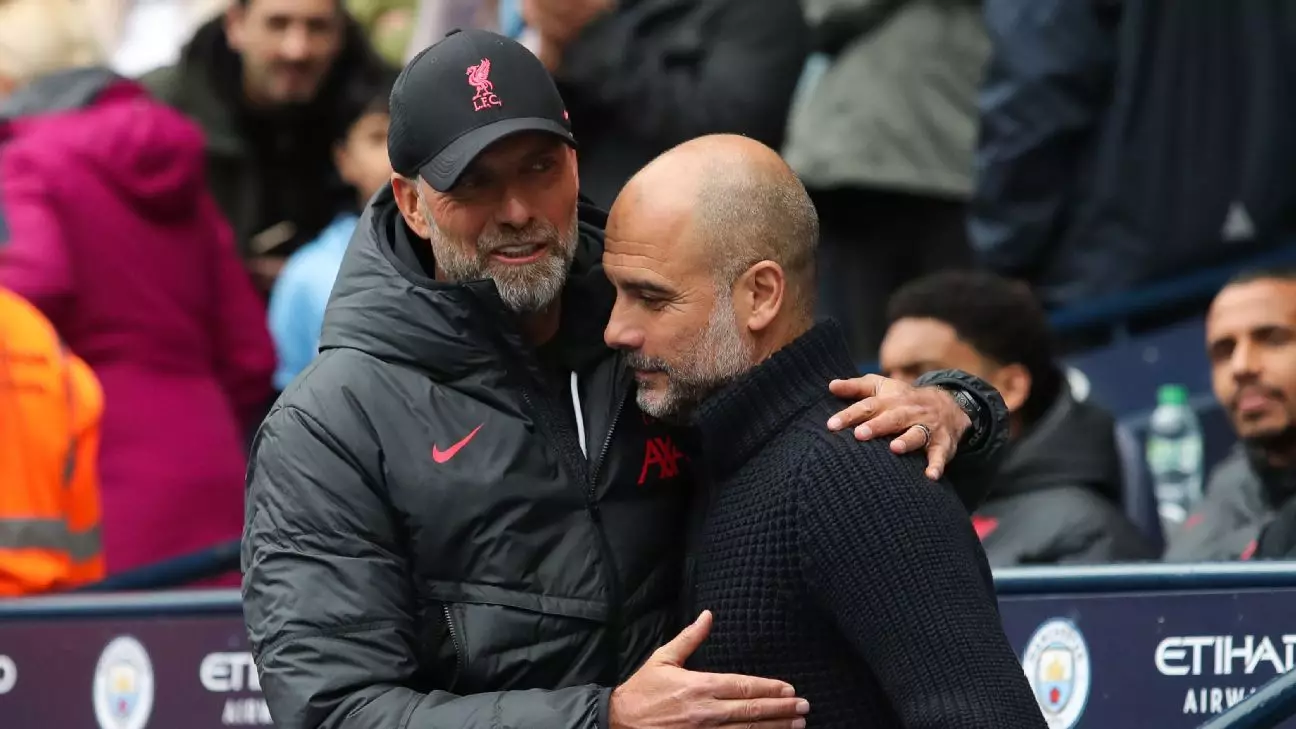In the realm of professional football, the integrity of the sport often stands under scrutiny, especially concerning financial regulations and the actions of club management. The recent comments made by former Liverpool manager, Jürgen Klopp, about Manchester City reveal the ongoing tensions in English football regarding financial fair play (FFP). With the Premier League’s investigation into City’s alleged 115 breaches of financial rules from 2009 to 2018, Klopp’s remarks echo a broader discussion of fairness and parity in competition. If the Premier League were to strip Manchester City of their titles, Klopp expressed an unequivocal enthusiasm for celebration, suggesting a party on the picturesque island of Mallorca.
Klopp’s jovial comment, while lighthearted, underscores a serious issue—the potential ramifications of these breaches on the history and narrative of modern football. For clubs like Liverpool, who finished as runners-up under Klopp’s management and faced City’s dominance during critical seasons, the notion of competing on a level playing field is paramount. It raises questions about how clubs can maintain competitive integrity when financial discrepancies may skew the playing field.
Klopp’s Reflections and Future of Key Players
Beyond the intrigue surrounding Manchester City’s potential fallout, the current situation at Liverpool looms large. When asked about the futures of key figures in his former squad—Trent Alexander-Arnold, Mohamed Salah, and Virgil van Dijk—Klopp’s words reflected both concern and warmth. Each player’s contract situation has remained a hot topic, especially as they approach the end of their deals. Klopp, now in a different role with Red Bull as head of global soccer, expressed a sense of relief at not having to navigate these contract negotiations, bringing a humorous touch to an otherwise serious subject.
The affection he has for his former players was evident as he highlighted Salah’s status as perhaps the “greatest striker of the modern era” for Liverpool. Klopp’s speculation about Van Dijk’s future also illuminated a thoughtful sentiment; he playfully envisioned a future where the Dutch defender might seek opportunities in a different league, even advocating for a hypothetical welcome in New York at an advanced age. This display of camaraderie showcases the deep connections forged during Klopp’s tenure at Liverpool and reflects his hope for continuity in maintaining the caliber of the squad.
Concerns About Player Welfare in the Fixture Congestion
Another poignant topic addressed by Klopp was the burgeoning concerns over fixture congestion in modern football, particularly in light of the FIFA Club World Cup. His critique of the tournament as being “useless” resonates with a growing anxiety among players, coaches, and fans alike about the relentless demands placed on athletes. Klopp’s argument for a more measured approach to scheduling speaks to the necessity of prioritizing player welfare alongside commercial interests.
The impact of injuries—an issue frequently discussed in the wake of intense gear—profoundly affects not only individual performance but also the overall dynamics of league competitions. Klopp’s assertion that reducing league sizes to 18 teams might alleviate some of the pressure is a necessary consideration for governing bodies. As the sporting landscape continues to evolve, customs and structures from yesteryear must be reevaluated to serve the game’s future more sustainably.
As Klopp navigates his new role while reflecting on his time at Liverpool, the intricacies of football governance and player management come to the forefront. His comments about Manchester City punctuate a critical moment in football history—one that forces clubs, fans, and officials to reconsider their approach to competition and fairness. Additionally, the saga surrounding player contracts at Liverpool serves as a reminder of the constant ebb and flow within top clubs in a highly commercialized sport.
In an era where the hearing of financial breaches can have far-reaching implications, Klopp’s playful ideas are steeped in a serious desire for equity and clarity in the beautiful game. As the sport moves forward, addressing player welfare, contract negotiations, and financial integrity will be paramount in shaping a more transparent and just footballing world.

